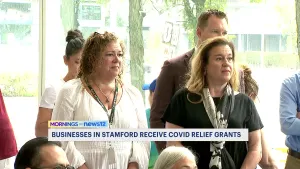More Stories
Tens of
thousands of people lost money when the COVID-19 pandemic forced the
cancellation of weddings, anniversary parties and other events. Now, a backlog
in cases means they won't get their day in court anytime soon.
In the
spring of 2020, Catherine Martins and Jaleel Taylor were looking forward to
celebrating the arrival of their baby, Tristan. So was the grandmother-to-be -
Denise Jones.
She
offered to pay for a baby shower on May 30 at the Castle in Roselle Park -
then, the pandemic hit. Across the tristate area, events of all kinds shut
down.
Adding
to the disappointment, the venue said it would not offer a refund, nor
reschedule the event. It would simply keep the money, saying that under the
contract, it was not responsible for events that could not be held due to
causes beyond its control.
Senior
Investigative Reporter Walt Kane took a closer look at the contract. It says
the caterer won't be liable for circumstances beyond its control, but as for
keeping Jones' deposit, it says the venue can only do that if she breached the
agreement - which she didn't do.
Jones
was furious, but when she tried take the caterer to court, she found yet
another problem.
"They're
so backed up with cases like ours, and even other cases and I'm like, you know,
this could be another year or two," Jones says.
Jones
isn't alone. Kane In Your Corner took a deep dive into the numbers and found
that New Jersey's court system is among the hardest hit in the country.
That's
especially true when it comes to special civil cases like Jones', where claims
are $15,000 or less.
When
the pandemic began, there was a backlog of just 440 cases. The latest
numbers, as of the end of June, show there are now over 55,000 cases.
Attorney
Michael Galpern says that backlog convinces some consumers to settle for less
than they're owed while others simply walk away.
"Consumers
and litigants have to weigh not only the inconvenience of bringing a lawsuit,
not only the delay and expense in bringing a lawsuit, but the fact that there's
going to be significant additional delays because the courts just don't have
the resources," he says.
That's
true in the rest of the tri-state as well. In Connecticut, the small claims
backlog increased by over 145%.
In New
York, research from five counties in the News 12 viewing area shows claims went
up by over 101%.
Galpern
says it took almost a year and a half to get this far behind and it may take
that long to dig out.
"We're
beginning to see the light at the end of the tunnel, but it's a long, dark
tunnel that we've gone through," he says.
It's
been almost 15 months since Martins' baby shower was canceled. Tristan is
already over 1 year old.
Under
New Jersey law, the family has more than four years left to pursue legal
action, but like a lot of families in that situation, they're not sure if it's
worth it or if they'll simply walk away.
"We're
in the circumstance that my event never happened, my son is now here, and now
what do I have to show for it? $3,500 that have gone down the drain,"
Martins says.
Consumer
attorneys say check the contract, particularly the cancellation clauses, if
your event was canceled due to the pandemic. They also say to be aware that
some venues are making lower offers because they know that if you take legal
action, it will take you longer to get to court.
More from News 12
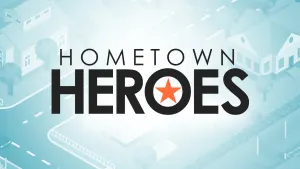
Hometown Heroes in Connecticut
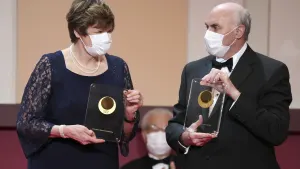
Nobel in medicine goes to 2 scientists whose work enabled creation of mRNA vaccines against COVID-19
0:29
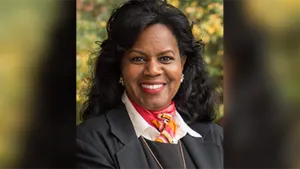
Connecticut health commissioner fired during COVID settles with state; dismissal now a resignation
0:21

Biden administration announces $600M to produce COVID tests and will reopen website to order them
2:00
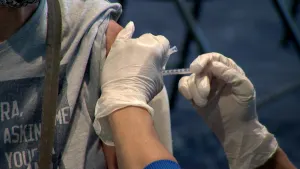
Should you get a COVID booster? Hartford Healthcare doctor says wait
0:22
